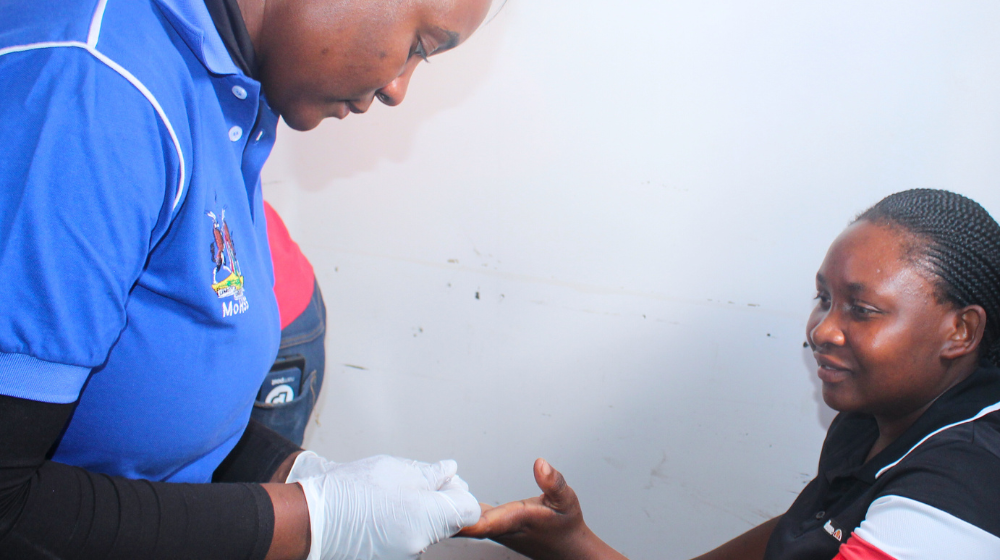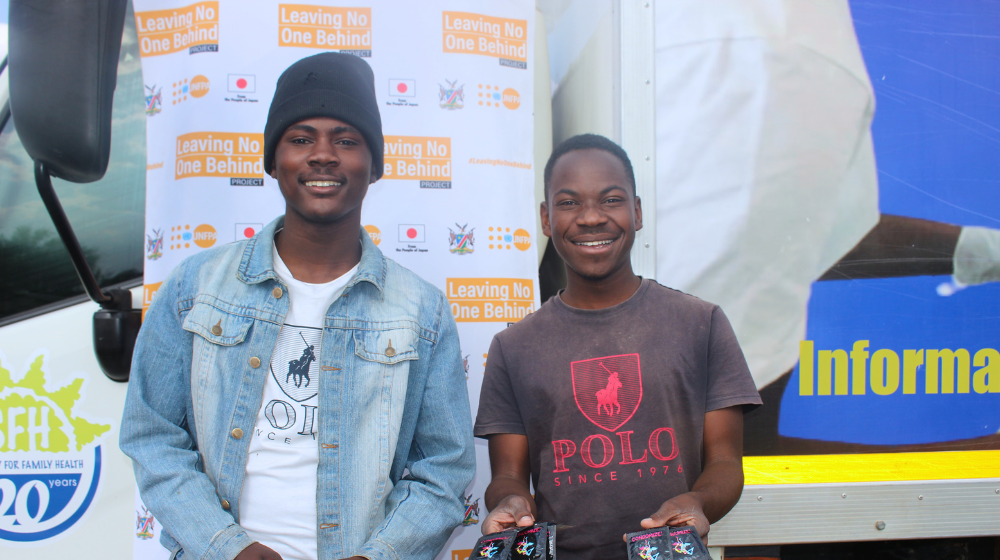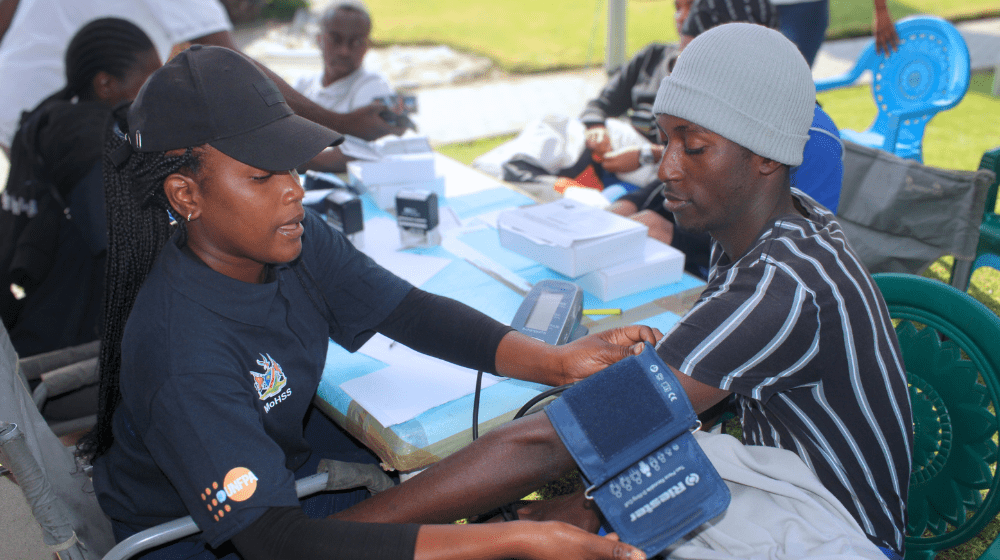WINDHOEK, Namibia - “I started Pre-Exposure Prophylaxis (PREP) last year when I was pregnant. I did not trust my partner, so I took it to protect myself”, says Claudia Christiaan, a student at the Windhoek Vocational Training Centre.
About 30% of new HIV infections in Namibia are among women between the ages of 15 – 24 years, underscoring the importance for young women like Claudia to have access to sexual and reproductive health (SRH) services in order to take ownership over their own lives, ensure their health and wellbeing as well as those of their children.
“People are not testing often enough so PREP is really helpful for those who do not know their partner’s status or do not trust them”, said Claudia when she visited the Leaving No One Behind project funded mobile van on 26 July 2023 at Windhoek Vocational Training Centre (VTC).
Whether it is PREP, Family Planning or HIV testing, the United Nations Population Fund (UNFPA) Leaving No One Behind project, in partnership with the Society for Family Health (SFH), is innovatively using mobile health clinics to make sexual and reproductive health services more accessible than ever in Namibia, especially for those left furthest behind in rural areas and informal settlements. The project is funded by the Japanese government.

The mobile van provides a multitude of essential SRH services, including sexual reproductive health education; family planning; HIV testing and linkages to treatment; GBV screening and referrals; STI screening and treatment; and pregnancy testing.
Meeting people where they are
On 25 July 2023, Penomwaneni*, a vendor at the Oshetu Community Market (most commonly known as Single Quarters) was engrossed in her work when one of her colleagues came to inform her that a mobile health clinic had just arrived on site. She immediately seized the opportunity to visit the clinic.
It is good that we have the mobile van here because sometimes it is difficult to go to the clinic because of work or far distances.
“It is good that we have the mobile van here because sometimes it is difficult to go to the clinic because of work or far distances”, said Penowaneni.
From April to June this year, the Leaving No One Behind project’s mobile health clinic reached 11 512 women and 1 505 men with essential sexual and reproductive health services in the Zambezi, Omaheke and Khomas Regions, including 29 persons with disabilities.
While the success of this initiative cannot be overstated, it has become apparent that men are less likely to take up services at these clinics.
“I tried to encourage some of my peers, but they still lack that self-confidence because they are still scared about what other people will say”, says 21-year-old VTC student Sylvester Motswagole, who came to the mobile clinic alongside some of his classmates when the mobile van visited the VTC campus in Khomasdal on 26 July 2023.
“I think with the availability of mobile clinics like this, if they are more frequent, people will be less reluctant to get tested if it is easier to go”, added classmate Mo Pahambira.
The mobile health clinic does not only improve access to essential SRH services by meeting people where they are, but it also plays a pivotal role in educating communities so that they are empowered to make the best choices for themselves concerning their sexual and reproductive health.
VTC student Mo encouraged others to make use of mobile health clinics, adding that, “any mistake can affect the rest of your life, so you have to take that extra step of precaution and keep yourself safe”.

“This is stuff that you have to take seriously. It is not a joke,” he stressed.
Improving access to SRH services is a key component of the Leaving No One Behind project. With invaluable support from the Japanese Government, the project’s primary goals are to restore dignity, reshape the future, and address Gender Based Violence (GBV) and negative Sexual and Reproductive Health (SRH) outcomes for women, girls, men, and boys in Namibia.


